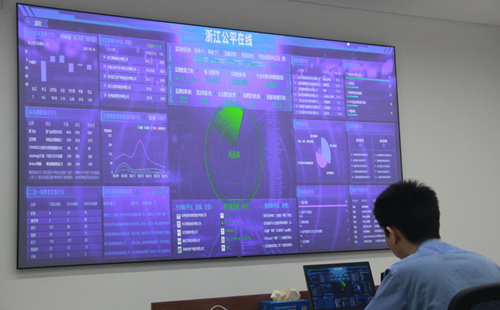Zhejiang regulation system cleans up improprieties in online commerce

An employee at a market regulation bureau in Hangzhou, capital of Zhejiang province, monitors risk data of e-commerce platforms via an online regulation system on Sunday. Zhao Yimeng / China Daily
Since East China's Zhejiang province launched an online regulation system in February targeting monopolization and other improprieties on digital platforms, 707 pieces of risk data have been detected and 149 cases have been filed, the provincial market regulation bureau said on Saturday.
The system, the first in the country, monitors 12 kinds of online misconduct risks, including selling below cost and monopoly agreements, on major e-commerce platforms, such as Alibaba's Tmall, JD, and Pinduoduo, said Wang Zhuangwu, the bureau's vice-director.
The system, for instance, recently detected an online store suspected of false advertising when exaggerating the functions of their eye cream. Based on the clue and shop identification, law enforcement officials later implemented administrative punishment to the owner, surnamed Zhang, who had admitted illegal acts with the store.
Moreover, it focuses on the regulation of anti-competitive tactics in the platform economy, including "pick one of two", a practice forcing merchants to sell exclusively on its platform.
The system monitors the data of Zhejiang businesses registered on both Meituan and Eleme, two leading platforms for take-out services.
"If we find that a business was suddenly shut down from one of the platforms, we will check offline with owners to see if they experience a monopolistic practice, because some of the stores may also close due to poor management," Wang said.
"We couldn't detect these kinds of issues before; now at least we have a clue," he added.
Thanks to the monitoring system, the bureau has so far shut down 12 businesses, and asked 155 others to rectify their online stores. A total of 159 commodities have been taken off shelves, the bureau said.
As the first digital monitoring platform in the Yangtze River Delta region, the system has integrated the regulation of e-commerce platforms in the area.
Since the system launched, it has monitored 370,000 online businesses and 8.93 million commodities in the region, and detected 836 risk messages, including those regarding a fishing ban in the Yangtze River and illegal trade of wild animals and plants, Wang said.





 play
play